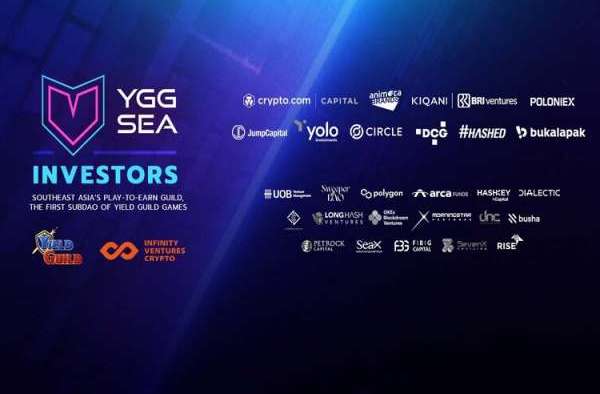Bukalapak and BRI Ventures Inject Philippine Virtual World Game Startup
Share

Bukalapak and BRI Ventures have invested in the Philippines-based Yield Guild Games Southeast Asia (YGG SEA). Both of them participated in the YGG SEA funding round with a total of US$ 15 million or around IDR 215 billion.

“Of course, Bukalapak is always open to development,” said Fairuza Ahmad Iqbal, Head of Media and Communications of PT Bukalapak.com Tbk, on Monday (13/12).
He conveyed that the company opens opportunities to invest, especially if there are opportunities that have good potential and are in line with Bukalapak, both in terms of services, segments, and goals.
YGG SEA is the official subDAO of blockchain-based gaming company Yield Guild Games. YGG SEA was launched as a decentralized autonomous organization (DAO) last July. YGG SEA leverages YGG’s infrastructure and assets to serve the community to join the metaverse or virtual world.
How, through local investment, education, and services in the field. A subsidiary of Bank Rakyat Indonesia (BRI), BRI Ventures is also one of YGG SEA’s investors.
“With so many Indonesians who want to enter the metaverse, it is natural for us to partner with YGG SEA,” said Founding Partner Sembrani Kiqani Marcel Lukman as quoted by Antara, Monday (13/12).

Mission to Create Southeast Asia’s Largest Play-to-Earn Virtual Economy
YGG SEA’s missions are to create the largest and also the most sustainable ‘play-to-earn’virtual economy in Southeast Asia. YGG SEA is a founding member of the Asia Blockchain Gaming Alliance.
Play-to-earn is a game that allows players to acquire digital assets or items to trade. Currently, NFT games with the play-to-earn concept are increasingly popular because they involve crypto assets.
Whereas the guild is a feature developed to allow communication between players. In addition, it helps them build a community among players in the free fire game.
YGG SEA will use the fresh funds to provide offers to the regional gaming community. Guild games focusing on supporting the play-to-earn games developed locally in each country and acquiring game assets for the benefit of the community base.
Evan Spytma leads YGG SEA as the co-founder and also CEO, with more than twenty years of experience in the game studios such as Unity Technology and Electronic Arts (EA).
Another founder is Dan Wang, who previously headed operations at Riot Games in China. In addition, there is Irene Umar from Discovery Nusantara Capital, a venture capital for games based in Indonesia.

Have an Experienced Team in Encouraging Technology Adoption
“While we have a worldwide presence, subDAOs like YGG SEA are at the core of YGG’s expansion strategy because they have local knowledge and networks,” said Yield Guild Games co-founder Gabby Dizon.
The team that launched YGG SEA has deep experiences in driving technology adoption in the region and the demand for play-to-earn games across Asia is strong.
He said, Southeast Asia represented more than 700 million people from 11 countries. The region is also one of the most active crypto regions globally.
As of November, four of the top 10 countries in terms of using Metamask wallets, were in Southeast Asia. Most deals are driven by Axie Infinity and other play-to-earn games.
“We pioneered the model for the benefit of some of the most active NFT countries in the world as YGG’s first subDAO. The Philippines has become the center of the play-to-earn movement over the past year,” said Evan.
He noted that the demand for play to earn services was also increasing rapidly in other countries, including Southeast Asia. “It’s important to have a team like ours, with a down-to-earth attitude and understanding of local needs and cultural nuances, who can build regional communities from the ground up,” he said.




















